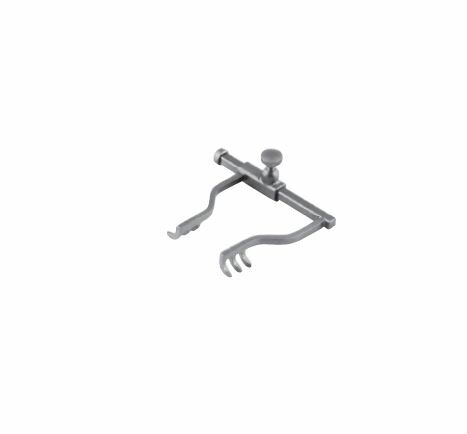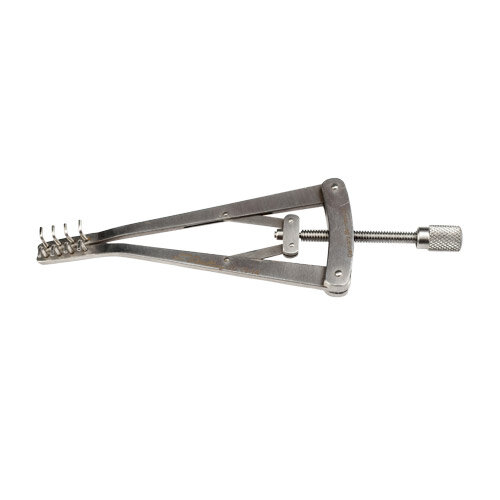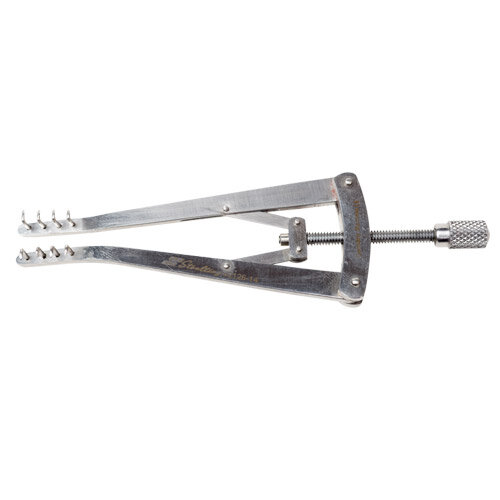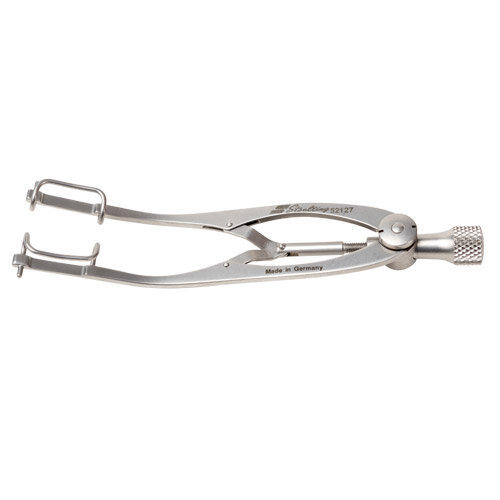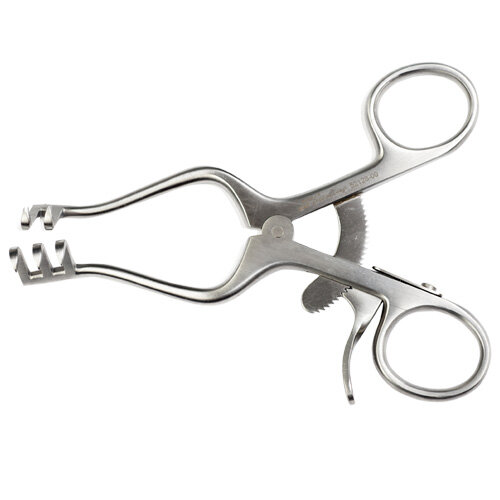Please specify the quantity of product(s).












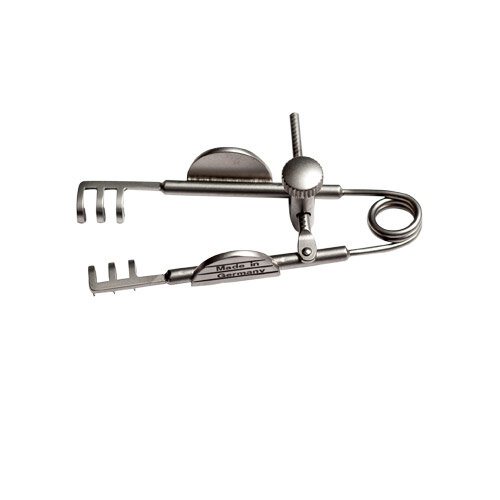
Loading...
ITEM: 52124P
Retractors
Actively separate the edges of a surgical incisions or wounds
| Item | Product | Price | QTY |
|---|---|---|---|
| 52124 | Agricola Retractor, 1.5in. 3X3 4mm Sharp | Login | |
| 52124P | Agricola Retractor, 1.7in, 3X3 Prongs | Login | |
| 52125 | Goldstein Retractor, 1in. 3X3 4mm Sharp | Login | |
| 52125P | Goldstein Retractor, 1in. | Login | |
| 52126-10 | Alm Retractor, 2.75 inch | Login | |
| 52126-10P | Alm Retractor, 3 in, 4X4 Prongs, 2in Spread | Login | |
| 52126-14 | Alm Retractor, 4 inch, 4x4 Prongs | Login | |
| 52126-14P | Alm Retractor, 4in, 4X4 Prongs, 2.5in Spread | Login | |
| 52127 | Castroviejo Retractor, 3.75in. 15X15mm | Login | |
| 52127P | Castroviejo Retractor, 3.75in, Screw-type Adjustable | Login | |
| 52128-00 | Weitlaner Retractor, 2 X 3, 4 inch, Sharp | Login | |
| 52128-00P | Weitlaner Retractor, 2X3, 4.5in, Sharp Prongs | Login | |
| 52128-02 | Weitlaner Retractor, 2 X 3, 4 inch, Blunt | Login | |
| 52128-12 | Weitlaner Retractor, 3 X 4, 5.5 inch, Blunt | Login | |
| 52128-14 | Weitlaner Retractor, 3 X 4, 6.5 inch, Blunt | Login |
Retractors can be used to actively separate the edges of a surgical incision or wound, or can hold back underlying organs and tissues, so that body parts under the incision may be accessed.
Sharp retractors are better at providing a secure grip and they can safely hold back the skin, muscles, fascia, tendons, or the periosteum but they may damage vessels, nerves, the peritoneum, glands or cysts. Blunt retractors are recommended when iatrogenic injury is a concern. The main benefit of blunt retractors is that they prevent unintended injury to the tissue held by the retractor or to the underlying tissue.
